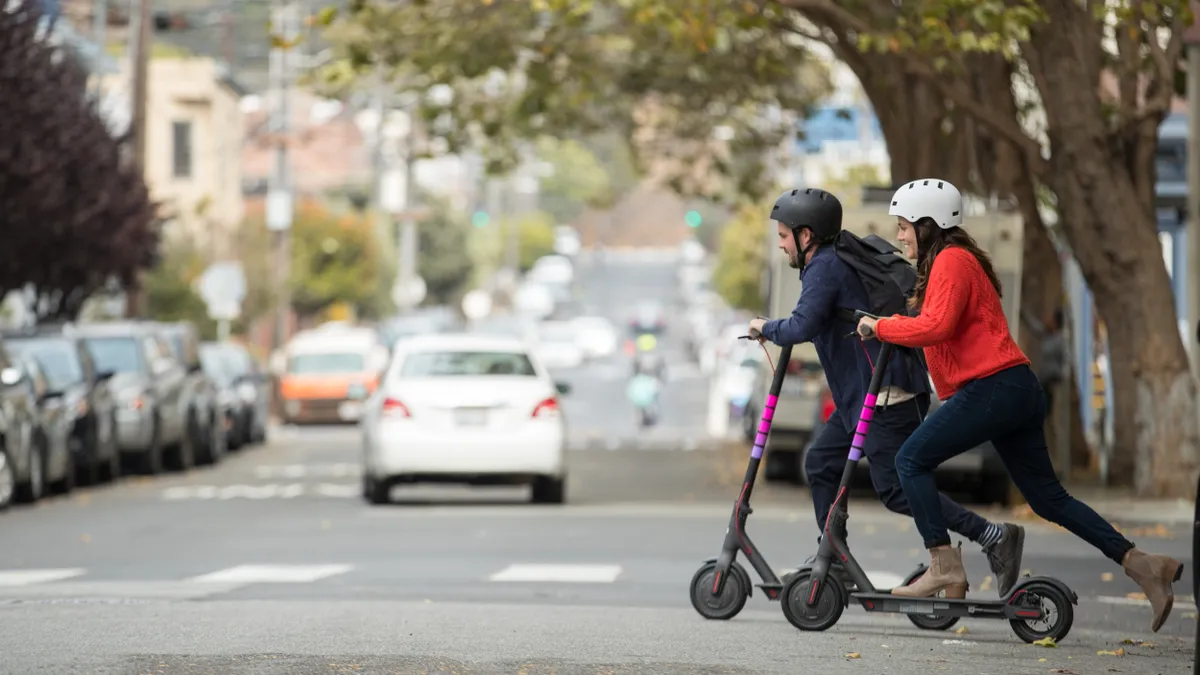Dive Brief:
- Washington, DC is a leader in the micromobility space due to its open data policies, said data tracking company Transit in a Medium post.
- Transit analyzed data for the last six months of DC's dockless scooter pilot and revealed that, at the beginning of last summer, 4.8% if its app users had downloaded a scooter company's dedicated app; that has grown to nearly 9% today. But Transit asserts users have "download fatigue" and are less likely to download additional scooter companies' apps, in some instances preventing consumers from finding the scooter that's actually closest to them or most reasonably priced.
- The report suggests if users don't download multiple scooter apps and therefore can't see all their scooter options at once, scooters may cease to be a reliable, daily commuting option. But open APIs could double the number of scooters available to users without actually putting more scooters on the streets. Plus, open data allows smaller micromobility companies to compete with those that are larger and more well known.
Dive Insight:
The claim about download fatigue presents interesting — if not troubling — information for micromobility companies. It suggests that achieving greater market penetration could be difficult unless those companies find a way to reach users who have already downloaded competitors' apps. That might involve reworking marketing strategies or shifting the focus away from simply drawing in new users who have not used scooters before.
The data presented in this report does only include information from users who have downloaded the Transit app. Still, Transit estimates it has 200,000 monthly users in the greater DC area, which is not an insignificant number.
Transit is not alone in its calls for cities to embrace open APIs. For example, mobility data company Coord released an open data platform for managing curb space, and TransitScreen and MobilityData collaborated on the new OpenMobilityData platform. Open data is also an underlying concept behind Los Angeles' Mobility Data Specification, a tool to assist with mobility program governance.
Transit refers to open data as the "great equalizer." It evens the playing field and eliminates barriers to competition for small mobility businesses matched against giant companies. But perhaps most importantly, it gives consumers more choices, which could lead cities to a more diverse and connected transportation landscape.













